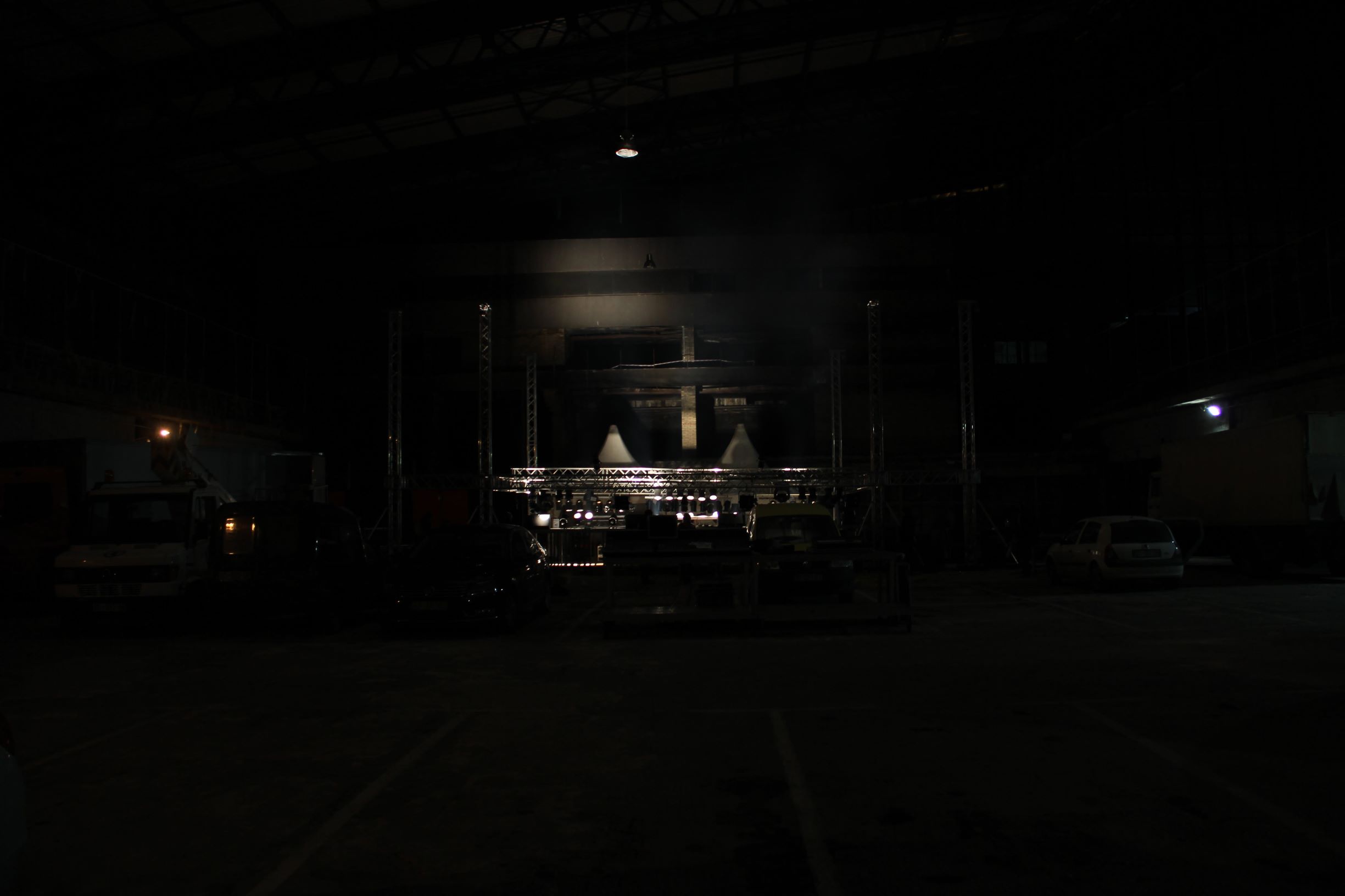
Identity Restoration Reloaded,
‘Event0: Identity Restoration’
Identity Restoration Reloaded, as a project, is based on the re-enactment of the conference
‘Event0: Identity Restoration’ (27 June 2007), organised by Stacion – Center for Contemporary Art Prishtina in time of great expectations but also great fears on what would the forthcoming independence of Kosova bring to the Kosovo Serbs and the region.
In 2007, in the last days before the conference Oliver Ivanovic had cancelled his participation in the conference.
‘Identity Restoration Reloaded’ as a re-enactment, appears in a context and a country with no such practice in the art scene, a country with diminishing archival culture and disappearing public institutions that can function as a memory of a society - 'history making' as a tool for erasure and engineering the past for the present power players is a dominant practice in this country.
The timeline of the implementation of ‘Identity Restoration Reloaded’ project and its structure are central to the project. The most visible part of the project will be implemented during November 2012, the time when in Albania and Kosova state structures will celebrate the 100 anniversary of the Independence of Albania.
Overall, ‘Identity Restoration Reloaded’ will be implemented with events in the public space in Prishtina - the billboard project “NSK State in Time” by the Ljubljana based group IRWIN, the artistic wing of the ‘Neue Slovenische Kunst – NSK’ (1 Nov. – 1 Dec 2012), the exhibition ‘My Name Their Town’ with the artist Alban Muja (14 Nov. – 7 Dec. 2012), the performance of NSK’s music wing Laibach (16 Nov. 2012) and culminate with the conference “Identity Restoration Reloaded” (15 Nov. 2012) that will include invited panelists of the first conference (Isuf Berisha, Baton Haxhiu, Aasmund Andersen, Valon Murati, Migjen Kelmendi, Albert Heta and Petrit Selimi), the TV debate at ‘Opinion’, the flagship TV debate program at Klan TV Albania (20 Nov. 2012) with participants of the first conference and invited panelist from Albania, and continue with the publication of the project. The publication will also include the transcripts of the discussions, papers and other documentation of the re-enacted conference.
Simultaneously, and from the start of the implementation of the project, in the northern parts of Kosova, Nebojsa Milikic will develop a research-based project; ‘Interviews with Kosovo Serbs’. ‘Interviews with Kosovo Serbs’ will be broadcasted through online radio platform hosted at the website of Stacion – Center for Contemporary Art Prishtina and selected radio stations in Kosovo and Serbia.
All working modules and phases of the ‘Identity Restoration Reloaded’ project have a specific role in the complex structure of the project.
Placed in the Kosovar context and in the given public space, selected projects by IRWIN and Laibach represent a political position of the project aimed to function as a substantial intervention in the visual and entertaining dynamics of the time when the project will appear in the public space.
The NSK State came into being in 1992 as a result of the transformation of Neue Slowenische Kunst into the NSK State in Time. The Neue Slowenische Kunst collective (NSK) was formed by three founding groups – Irwin, Laibach and the Gledališče sester Scipion Nasice theatre group – back in 1984, still within the framework of the former Socialist Federal Republic of Yugoslavia.
Awareness of the specific conditions for operation in the field of art in the then Yugoslavia, which was largely defined by the closedness of the art system and a valorization system adjusted to local needs, led to a concentration of critical mass and confrontation with the art system. The antagonism generated in this way, as a consequence, clearly delineated the contours of and subjectivized particular groups and of NSK as a whole. Self-evidently, in conditions of strained relationships, the responsibility for art production and its reflection lay solely with us, and it was precisely through steering this confrontation that we established our autonomy. In short, collaboration and common wealth were the basis and the inevitable consequence of Neue Slowenische Kunst’s positioning in relation to the cultural and political reality of the Socialist Federal Republic of Yugoslavia. With the collapse of socialism in the beginning of the 1990s and the disintegration of Yugoslavia, the conditions of our operation changed radically as well, affecting the transformation of Neue Slowenische Kunst into the NSK State in Time in 1992. Along with the emergence of a multitude of new states, some of which, among them Slovenia, achieved the status of an independent state for the first time ever in history, NSK too objectified itself in the form of state.
Instead of to a territory, however, NSK assigns the status of state to thinking, which alters its boundaries in accordance with the movements and changes of its symbolic and physical collective body. At the time of its formation, the NSK State in Time was defined as an abstract organism, a suprematist body, installed in a real socio-political space as a sculpture, consisting of body heat, the movement of spirit, and the work of its members.
‘Identity Restoration Reloaded is supported by the Ministry of European Integration of the Republic of Kosovo, Office of the EU High Representative in Kosovo, Ministry of Culture, Youth and Sports of the Republic of Kosovo, Ministry of Foreign Affairs of the Republic of Kosovo, Directorate for Culture, Youth and Sports of the Municipality of Prishtina, KTV, Klan Kosova, Uje Rugove, Butterfly, Koperativa, X-Print and DZG